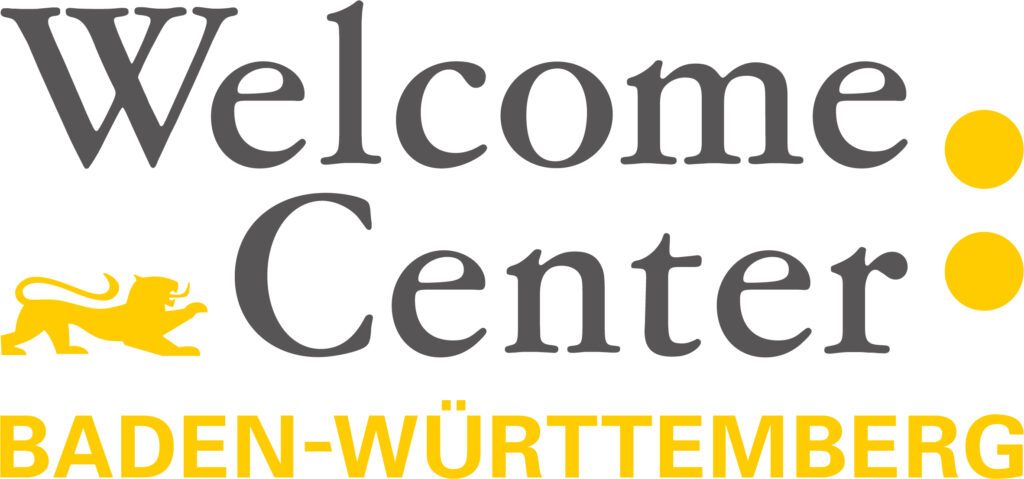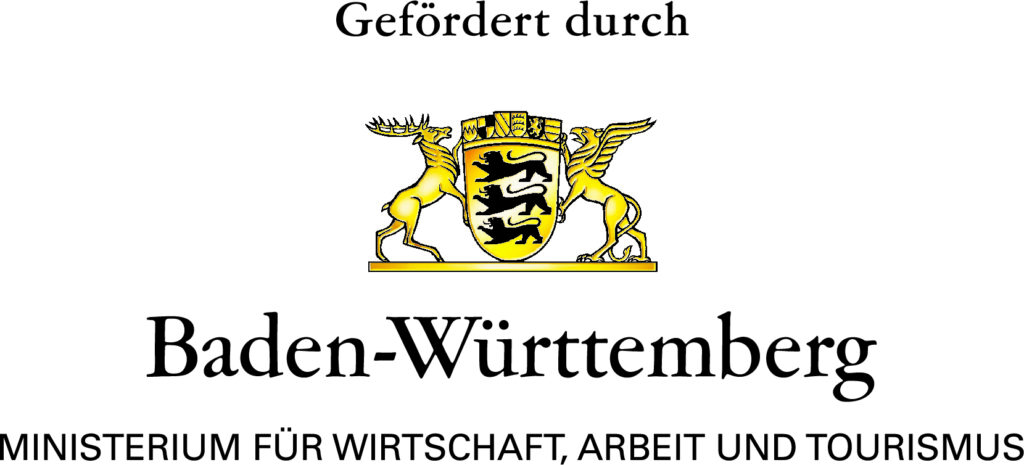Living
As a future citizen of the Karlsruhe TechnologyRegion, you have a wide range of rental apartments to choose from. However, the search for the ideal apartment requires energy, as demand is very high.
To help you find accommodation quickly as an international specialist in the Karlsruhe TechnologyRegion (TRK), we are happy to provide you with tips and information about living in Germany.
House hunting
Even before you start your search, you should think about what you expect from your future home in terms of size, location, transport links and rent level. The more specific you know what you are looking for, the more targeted your search will be.
You can find rental offers for apartments and houses in the service sections of regional and local newspapers as well as on internet platforms.
Regional and local newspapers:
In the Karlsruhe TechnologyRegion, we particularly recommend taking a look at the Saturday edition
- of the Badische Neueste Nachrichten (BNN) and
- of the advertising paper Der Kurier(the ads are also available online here).
The following newspapers can also be considered for a wider catchment area:
- Badisches Tageblatt
- The Rheinpfalz
- Palatinate Echo
- Pforzheimer Zeitung
- Stuttgarter Zeitung
The following nationwide online platforms are available for finding accommodation on the Internet:
Real estate sites on the Internet often contain several photos of the rental property so that you can get a concrete idea of what you are looking for.
If you prefer to rent a room in a shared flat, you can find offers at:
For students and interns, there is an international online accommodation platform that specializes in rooms and shared flats for this target group:
You can also contact a real estate agency when looking for an apartment. Estate agents charge a commission for brokering apartments. This may also apply if an estate agent advertises an apartment in the newspaper. However, the commission is a kind of success fee, which means that you only have to pay a commission if a rental agreement is actually concluded. The maximum commission allowed is up to two months' rent (basic rent) plus VAT.
If you are looking for an apartment in and around Karlsruhe, you can also contact the housing association of the city of Karlsruhe - Volkswohnung GmbH:
VOLKSWOHNUNG GmbH
Ettlinger-Tor-Platz 2
76137 Karlsruhe
Phone: (+49) (07 21) 35 06 - 0
E-mail: [email protected]
In addition, it can always be helpful to ask around among friends and colleagues for an apartment.
Information for students
It is often difficult for students to find accommodation, especially at the beginning of the semester. It is therefore advisable to start looking for a room or apartment early before the semester begins.
For students at state universities at TRK , the Studierendenwerk Karlsruhe also provides places in halls of residence in Karlsruhe and Pforzheim. Due to the high demand, an application for a place is unfortunately no guarantee of a room.
In addition, the Studierendenwerk offers you a free accommodation service for private rooms as well as tips and tricks for finding accommodation.
In the Student House (right wing, basement, passageway to the cafeteria on Adenauerring) you will find further information on available rooms. It is open from Monday to Friday from 8 am to 5 pm and on Saturday from 8 am to 12 pm. The offers are renewed every day at 11 am.
Contact for students
Studierendenwerk Karlsruhe
Studentenhaus
Adenauerring 7
76131 Karlsruhe
Contact
Dormitory administration
Tel: +49 (0)721 6909-200
Private accommodation
Tel: +49 (0)721 6909-192
E-Mail: [email protected]
Wohnheim for students and trainees in Bruchsal - Stage 76
Am Alten Güterbahnhof 11
76646 Bruchsal
Email: [email protected]
You still have no idea what life in a hall of residence is like? We recommend the illustrated dormitory dictionary of the Deutsches Studentenwerk, which shows everyday situations in a student hall of residence.
Information for trainees
The Kolping House Association offers young trainees accommodation, meals and educational support. The association is part of the Kolping Society, an international Catholic social organization. Kolping hostels for trainees can be found on the website, Jugendwohnen in den Kolping-Wohnheimen - Wohnen auf Zeit für Azubis, Studierende und viele anderen. The halls of residence place great value on communal living, for example through shared meals and leisure activities. After work, contact can be made with other young people who are in a similar situation.
Youth housing is for all 14 to 27-year-olds who go to school, are doing an apprenticeship, are studying or cannot live at home because of the distance to their workplace.
Contact for trainees
Association of Kolping Houses e. V.
Breite Str. 110
50667 Cologne
Tel: +49 (0)221 / 29 24 13 - 0
Email: [email protected]
Rental agreement
In Germany, rental agreements must always be concluded in writing. The rental agreement usually states the basic rent, i.e. the rent for the pure use of the space. In addition, there is usually an amount for ancillary costs, which tenants must also transfer to the landlord each month along with the basic rent. Which services are covered by the ancillary costs can vary from rental agreement to rental agreement. Before signing a rental agreement, clarify with the landlord what is included in the service charges and what other costs you may incur.
The monthly charges for a rented apartment in the form of operating or ancillary costs may be higher than the net rent charged by the landlord. These include, for example, costs for:
- Cold and hot water
- Heating
- Electricity
- Garbage collection
- Waste water
The following costs may also be incurred:
- Costs for house cleaning, janitor, chimney sweep or garden maintenance
- Insurances
- Cable connection
- Costs for communal facilities
These ancillary costs vary depending on the location,
- how many people live in the apartment (mainly affects water and electricity consumption),
- how many rooms there are and which of them are used (this mainly affects heat consumption),
- how the apartment is equipped (better insulation results in lower heating costs) and
- what additional expenses must be paid (for example, if there is an elevator or a garden).
Monthly advance payments are usually required for ancillary costs, which are based on an estimate of consumption. At the end of the year, you will be billed on the basis of the actual costs incurred. You may be reimbursed, but you may also have to pay extra if you have used a lot of water, for example. It is therefore advisable to compare the meter readings at regular intervals and adjust the advance payments if necessary.
Attention!
Not all costs of an apartment or house may be charged to tenants. If in doubt, find out exactly which ancillary costs can be passed on and which cannot. You can obtain expert advice on all rental and housing issues from tenants' associations in Karlsruhe, Baden-Baden and in the larger municipalities at TRK.
In addition, a deposit is usually required when moving into a rented apartment. The deposit is a sum of money that you pay to the landlord as security. In this way, landlords can ensure that no claims remain outstanding against you as a tenant after you move out. Landlords are generally obliged toinvest the deposit at the usual interest rate for savings deposits with a three-month notice period and separately from their assets (so-called rental deposit account).
Other forms of investment are permitted, provided they are agreed between the landlord and tenant. Landlords must pay you back the deposit with the interest earned after returning the apartment. You are only entitled to repayment of the full deposit if you have settled all claims, i.e. if there are no outstanding rent and service charges. Landlords may also use the deposit to repair damage to the apartment caused by you, your guests or subtenants. The amount of the deposit may not exceed three months' rent (excluding ancillary costs) and can be paid to the landlord in three equal monthly installments. The first installment is due at the beginning of the tenancy.
As apartments are rarely rented furnished in Germany, your previous tenant may offer to take over furnishings (e.g. a fitted kitchen, fitted wardrobes, carpeting). By paying a transfer fee, you become the owner of the items in question. It is important to ensure that your previous tenant only demands the current value of the items. This depends on the new price, age and condition. However, you are not obliged to take over furnishings from the previous tenant.
Depending on the agreement, you can either pay the deposit to your landlord or provide a bank guarantee in the amount of the deposit. In this case, your bank undertakes to be liable for any outstanding claims of the landlord up to the amount of the bank guarantee. Contact your bank to find out more.
Living at TRK: more information
- Rest periods: In Germany, there are so-called rest periods, which are generally observed. These are usually Monday to Saturday between 1 p.m. and 3 p.m. and from 10 p.m. to 7 a.m. as well as the whole of Sunday. During these times, you should avoid loud activities such as mowing the lawn, loud music, hammering, etc.
- Broadcasting contribution: In Germany, there is an obligation to pay a contribution to finance the state broadcasters (radio and television). The principle here is that a contribution must be paid for every home - regardless of the number of residents and receivers. It does not matter whether public or private stations are received. If you move within Germany, you must report this to the ARD ZDF Deutschlandradio contribution service.
- Waste separation: You may have noticed it on the street or in your new neighborhood - in Germany there are different garbage cans for different types of waste. Waste separation is an expression of social environmental awareness and is taken very seriously here. You will find an explanation of how to dispose of waste correctly on the lid of each garbage can. The system is not easy at first. However, there are fines for deliberately disposing of waste incorrectly - so if in doubt, ask your neighbors if you are not quite sure how to separate your waste.
- Kehrwoche: Kehrwoche is a typical Swabian tradition that is also widespread in Baden and is important for a functioning, good neighborhood. It involves the weekly cleaning of communal areas in multi-party apartment buildings. As a rule, this means that you - depending on the number of your neighbors - take over the cleaning of these areas at a certain interval, for example every two weeks to clean stairs, corridors, cellar rooms, etc. In many apartment buildings, the sweeping week is also carried out by an external cleaning service and charged to your service charges. If in doubt, ask your neighbors how the sweeping week is organized in your building.
- Postal delivery: Please remember to put your name on your letterbox as soon as you move into your new home. Only then can letters, parcels etc. be delivered to you. You do not need to register separately with the post office.



